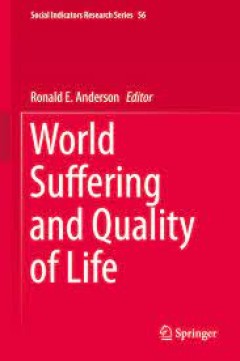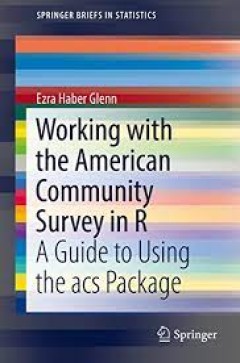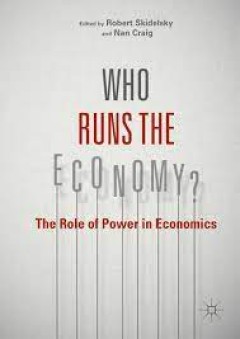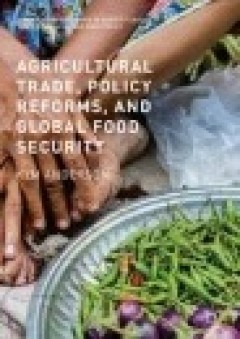Filter by

ZEMCH: Toward the Delivery of Zero Energy Mass Custom Homes
In this book, leading international experts explore the emerging concept of the zero energy mass custom home (ZEMCH) – designed to meet the need for social, economic, and environmental sustainability – and provide all of the knowledge required for the delivery of zero energy mass customized housing and community developments in developed and developing countries. The coverage is wide rangin…
- Edition
- -
- ISBN/ISSN
- 978-3-319-31967-4
- Collation
- -
- Series Title
- -
- Call Number
- -

World Sustainable Energy Days Next 2014 Conference Proceedings
These conference proceedings contain contributions to one of Europe’s largest annual conferences on energy efficiency and renewable energy. From two main fields - biomass and energy efficiency in buildings - contributions offer an insight into the research work and the scientific findings and developments of young researchers from all over the world. The papers were selected by a high-level s…
- Edition
- -
- ISBN/ISSN
- 978-3-658-04355-1
- Collation
- -
- Series Title
- -
- Call Number
- -

World Suffering and Quality of Life
This is the first book tackling the topic of world suffering. It compiles in one place the ideas, perspectives, and findings of researchers from around the world who pioneered research-based understanding of human suffering. Some chapters use the paradigm of ‘quality of life’ to explore ways to enhance knowledge on suffering. Other chapters show how concepts and knowledge from suffering re…
- Edition
- -
- ISBN/ISSN
- 978-94-017-9670-5
- Collation
- -
- Series Title
- -
- Call Number
- -

Working with the American Community Survey in R A Guide to Using the acs Pac…
This book serves as a hands-on guide to the "acs" R package for demographers, planners, and other researchers who work with American Community Survey (ACS) data. It gathers the most common problems associated with using ACS data and implements functions as a package in the R statistical programming language. The package defines a new "acs" class object (containing estimates, standard errors, a…
- Edition
- -
- ISBN/ISSN
- 978-3-319-45772-7
- Collation
- -
- Series Title
- -
- Call Number
- -

New Beginning in US-Muslim Relations
“In this clear, richly researched, and compelling book, Eugenio Lilli demonstrates that President Obama’s Middle Eastern policies reflect ‘Liberal Talk, Realist Thinking.’ In a wide-ranging study, which includes analysis of the recent Arab uprisings, Lilli argues that there was no re-setting of America’s relationship with the Middle east. On the contrary, US policy under Obama remaine…
- Edition
- 1
- ISBN/ISSN
- 978-1-137-58623-0
- Collation
- XIV, 302
- Series Title
- Middle East Today
- Call Number
- -

Who’s to Blame for Greece? Austerity in Charge of Saving a Broken Economy
Greece's economy symbolizes in many ways the Eurozone's economic problems and divergent interests as it amasses most of the economic disadvantages characterizing the Eurozone's economy itself. This book presents the economic and political challenges to Greece and the EU member states.
- Edition
- -
- ISBN/ISSN
- 978-1-137-54920-4
- Collation
- XV, 236
- Series Title
- -
- Call Number
- -

Who Runs the Economy
Since the financial crisis of 2008 and the following Great Recession, there has been surprisingly little change in the systems of ideas, institutions and policies which preceded the crash and helped bring it about. 'Mainstream' economics carries on much as it did before. Despite much discussion of what went wrong, very little has substantially changed. Perhaps the answer has something to do wit…
- Edition
- -
- ISBN/ISSN
- 978-1-137-58017-7
- Collation
- XV, 146
- Series Title
- -
- Call Number
- -

The Linear Model and Hypothesis
This book provides a concise and integrated overview of hypothesis testing in four important subject areas, namely linear and nonlinear models, multivariate analysis, and large sample theory. The approach used is a geometrical one based on the concept of projections and their associated idempotent matrices, thus largely avoiding the need to involvematrix ranks. It is shown that all the hypothes…
- Edition
- -
- ISBN/ISSN
- 978-3-319-21930-1
- Collation
- IX, 205
- Series Title
- Springer Series in Statistics
- Call Number
- -

Air Flow Management in Raised Floor Data Centers
The Brief discuss primarily two aspects of air flow management in raised floor data centers. Firstly, cooling air delivery through perforated tiles will be examined and influence of the tile geometry on flow field development and hot air entrainment above perforated tiles will be discussed. Secondly, the use of cold aisle containment to physically separate hot and cold regions, and minimize hot…
- Edition
- Ed. 1
- ISBN/ISSN
- 978-3-319-25892-8
- Collation
- XX, 72
- Series Title
- SpringerBriefs in Applied Sciences and Technology
- Call Number
- 333.79 ARG a

Agricultural Trade, Policy Reforms, and Global Food Security
This book explores the potential for policy reform as a short-term, low-cost way to sustainably enhance global food security. It argues that reforming policies that distort food prices and trade will promote the openness needed to maximize global food availability and reduce fluctuations in international food prices. Beginning with an examination of historical trends in markets and policies, An…
- Edition
- Ed. 1
- ISBN/ISSN
- 978-1-137-46925-0
- Collation
- XXV, 370
- Series Title
- Palgrave Studies in Agricultural Economics and Food Policy
- Call Number
- 337 AND a
 Computer Science, Information & General Works
Computer Science, Information & General Works  Philosophy & Psychology
Philosophy & Psychology  Religion
Religion  Social Sciences
Social Sciences  Language
Language  Pure Science
Pure Science  Applied Sciences
Applied Sciences  Art & Recreation
Art & Recreation  Literature
Literature  History & Geography
History & Geography